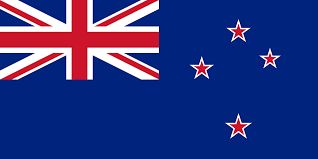New Zealand

Wellbeing Budget
New Zealand introduced the world’s first Wellbeing Budget in May, backed by a Living Standards Framework and indicators to measure social progress. These efforts align New Zealand’s approach with the global Sustainable Development Goals framework.
New Zealand’s Wellbeing Budget signals a new approach to the way governments work by placing the wellbeing of New Zealanders at the heart of what the Government does. For New Zealand, wellbeing is when people have the capabilities to lead fulfilling lives of purpose, balance and meaning to them.
This approach is a significant departure from the status quo. We are measuring our country’s success differently. We are not just relying on Gross Domestic Product, but also how we are improving the wellbeing of our people, protecting the environment and strengthening our communities. We are looking beyond traditional economic indicators to consider social, environmental, and economic implications.
The Wellbeing Budget demonstrates that human rights, including economic, social and cultural rights, are about the wellbeing of every individual and community. The Wellbeing Budget recognises that access to a decent home, good healthcare and public health, inclusive education, respectful social security, and a safe environment are vital for the dignity and wellbeing of our people.
In New Zealand’s first Wellbeing Budget, the Government’s priorities are focused on tackling the long-term challenges facing our country, while maintaining fiscal responsibility. New Zealand has five key priorities under the Wellbeing Budget:
- Taking mental health seriously;
- Improving child well-being;
- Supporting Māori and Pasifika aspirations;
- Building a productive nation; and
- Transforming the economy.
While New Zealand is focused on these key priorities, the Government recognises that it’s also important to keep investing in good, reliable infrastructure to provide the things that New Zealanders expect and deserve – like quality schooling or healthcare. The Government is also balancing the need for fiscal sustainability for future generations.
The Wellbeing Budget provides an opportunity to direct Government focus towards measurable improvements to human rights in our country. The Government is also looking at what will make a difference in tackling the long-term issues New Zealanders care about – like mental health, child poverty, and climate change.
New Zealand Treasury started work on the Living Standards Framework to help advise successive governments about the likely effects of policy choices on New Zealanders’ living standards over time. The Framework builds on the OECD’s Better Life approach, released in 2011 as a wellbeing framework that considers people’s living conditions and quality of life today (current well-being), as well as the resources that will help to sustain people’s wellbeing over time (natural, economic, human and social capital).
New Zealand is proud of our Wellbeing Budget, and we look forward to seeing the impact of these landmark policies in years to come.
Our story 2018…
Women’s empowerment
Aotearoa New Zealand is celebrating 125 years of universal women’s suffrage. An enormous struggle by suffragists, led by Meri Te Tai Mangakāhia and Kate Sheppard, culminated in women securing the right to vote in 1893. More than 30,000 signatures were collected during a seven year campaign across our nation. The campaign culminated in the presentation of a petition seeking the enfranchisement of women, carried in a wheelbarrow to Parliament. It was the largest petition ever gathered in Australasia with a quarter of voting-age women in the country signing on. The law was changed and just two months later, New Zealand women became the first in the world to exercise their right to vote in a national election.
Those who led the fight for women’s suffrage were determined, strong-minded, and committed. On the anniversary of this achievement, the Government is proud to maintain New Zealand’s role as a leader in gender equality. We recognise, however, that more can be done to protect and promote women’s rights. New Zealand wants a world where gender equality is achieved, where society is free of entrenched gender norms, and where women and girls can reach their full potential.
Three examples demonstrate New Zealand’s recent progress:
- We are working to achieve pay equity, or equal pay for different work of equal value, to address systemic structural discrimination where jobs that have predominantly been performed by women are undervalued and paid less than male-dominated jobs. A recent NZ$2 billion pay equity settlement for 55,000 care and support workers in New Zealand’s service industry demonstrates the significance of this issue. We are also leading work to eliminate the gender pay gap within the core public sector, and have extended paid parental leave to 22 weeks this year, and to 26 weeks from 2020.
- We are encouraging women and girls to train and work in occupations where high growth is projected and where women are under-represented, including science, technology, engineering, mathematics, and construction and trades. ‘A Nation of Curious Minds, He Whenua Hihiri i te Mahara’ is a cross-government initiative aimed at improving engagement with science and technology across all sectors of society.
- We are also committed to improving the gender balance amongst senior leadership positions in the public sector, and supporting women to realise their leadership potential. Our Ministry for Women has collaborated with chambers of commerce, economic development agencies, industry training organisations, trade associations and other Government departments to promote gender diversity and greater workplace flexibility for both women and men.
This year (2018), we honour those determined and courageous women and men who fought against incredible odds to enable New Zealand women to be the first in the world to win the right to vote. It is these pioneers who helped define what we are today – a nation of people whose dreams and ambitions are boundless. The achievement of those women and men who won the right to vote is an enduring example of how individually and collectively we can influence positive change that will benefit all New Zealanders.
